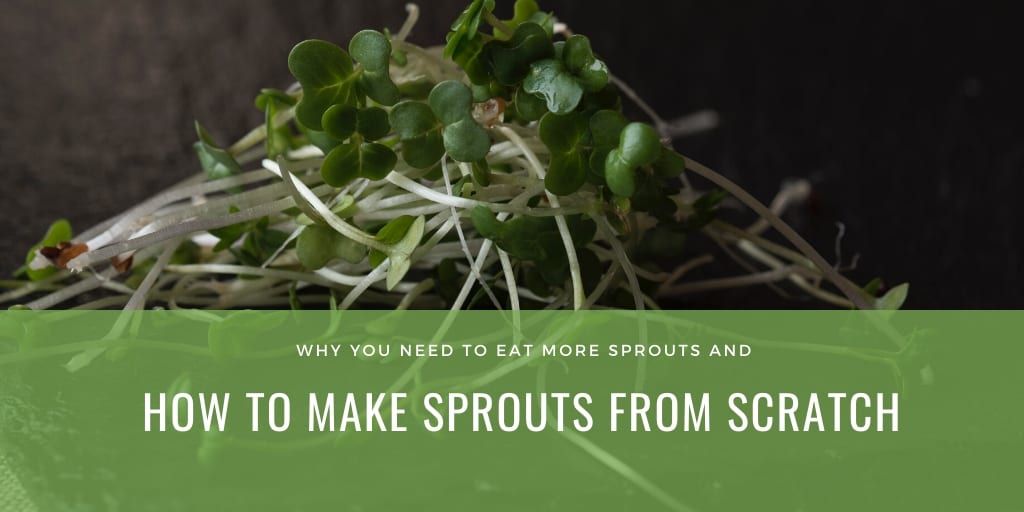As well as being an amazing opportunity to watch something grow, the idea of having fresh sprouts growing in your kitchen has more to offer you than you probably realise. Now-a-days when you go to a fancy breakfast cafe, like our favourite little corner table down at Wharf Road in Coromandel, you will get a luscious side of crispy, light sprouts to garnish your plate, but did you know more than just a garnish they are an immune-boosting, weight reducing natural wonder!
So let’s take a look at some of their healing qualities and get you started on growing your own at home.
Sprouts have long been revered for their health benefits. Depending on the ‘healthy food trend’ you are focused on right now, they may or may not be for you. Especially if you’re deterred by the fact that they are grain, legume and bean-based (yep that’s a heads up to all our keto friends).
What you might not know is that they actually enhance the nutritional value of the grains, legumes and beans that they sprout from. As well as providing antioxidants to the body, helping digestion and detoxification, supporting the heart, balancing acidity, and improving eyesight, the process of sprouting eliminates the gas-producing starches that many people are trying to avoid when they eat beans and pulses. This means they are less farty, which may not be all that important for you, but it is for us in our kitchen, where we cook for yoga retreats.
As well as reducing the starchy gases, the process of sprouting also increases the protein content and helps to reduce the amount of time needed for cooking. In the case of making dahls or curries we highly recommend beginning the sprouting process, you don’t have to wait until the form leaves but it does make a noticeable difference to the digestive system if they pre-soaked for 12 hours to a day.
But wait, there’s more. The healing qualities don’t stop there. Sprouts are great for supporting hair growth and increasing sebum production (which is basically the natural hydration for your hair), so if you eat enough of them you can get on top of a dry, flaky scalp, and potentially reduce premature greys. Because of the high levels of vitamin C, antioxidants and natural fatty acids, sprouts are great for reducing inflammation in your skin, and increasing the production of collagen which helps to keep you looking healthy and young.
All in all there are plenty of reasons why you should add this crispy garnish to your everyday menu.
With that said they can be surprisingly expensive to buy in the fresh produce section of the supermarket, and given that they are so easy to make from scratch we thought we would tell you how.
Making Your Own Sprouts from Scratch
Start with Organic Seeds (if your going to eat healthy its good to avoid all the nasty chemicals that are being put on crops these days).
Organic seed suggestions:
Alfalfa, red clover, lentils, mung beans, aduki beans and chickpeas.
Place a handful of seeds in a jar or sprouter. A mason jar works great.
Soak the seeds in water – aim to have double the amount of water to cater to absorption and scoop off any floating debris.
If you are using a jar cover the top with a piece of cheesecloth or light towel.
Soak overnight.
Drain the water out through the cheesecloth or sprouting lid. Once done, run fresh water through the lid and shake to rinse these sprouts thoroughly. Drain and repeat this process twice a day until the ingredients sprout (it can take about 2-5 days to sprout).
Keep in a warm place until size desired.
Most sprouts are used when a small root appears or in the case of a small seed, when the sprout has the first green leaves.
Store in a glass Tupperware container with a tightly sealed lid in the fridge.
It is that simple!
Enjoy the process of watching the seeds crack open and new life form. If you have kids, they will LOVE it!






